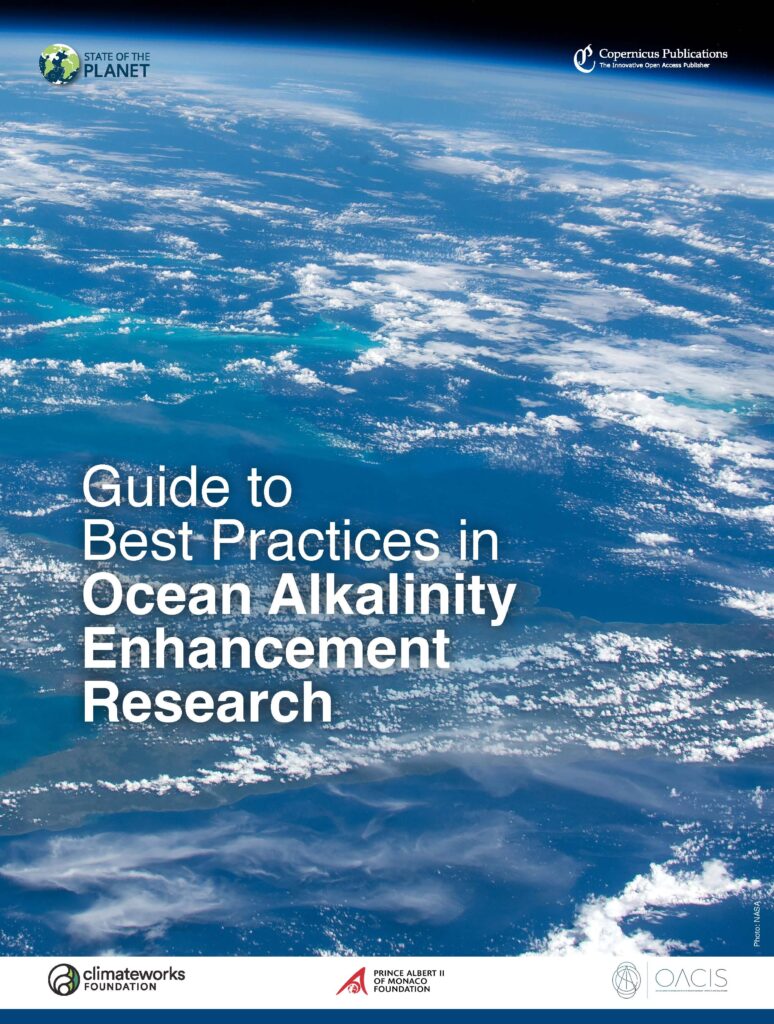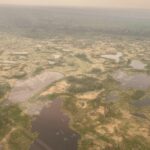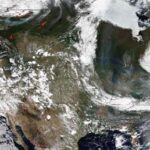
ESSIC/NOAA Ocean Carbon and Acidification Data System (OCADS) Scientist Liqing Jiang led a chapter of the Guide to Best Practices in Ocean Alkalinity Enhancement Research, a comprehensive document prepared by 51 international co-authors that explores the emerging research area of Ocean Alkalinity Enhancement (OAE), a principal method in marine Carbon Dioxide Removal.
The chapter led by Jiang, “Data reporting and sharing for ocean alkalinity enhancement research”, focuses on establishing data management guidelines for OAE. Effective management of data guarantees the long-term preservation, interoperability, discoverability, and accessibility of data, and is thus essential for successful research.
OAE research generates various types of data, such as discrete bottle measurements, autonomous measurements from surface underway and uncrewed platforms (e.g., moorings, Saildrones, gliders, Argo floats), physiological response studies (e.g., laboratory, mesocosm, and field experiments, and natural analogues), and model outputs. This paper addresses data and metadata standards for all these types of OAE data.
As part of this study, the researchers updated existing data standards to accommodate OAE research needs, and introduced a completely new physiological response data standard. Additionally, they upgraded an existing ocean acidification metadata template to be applicable to OAE research. This paper also presents controlled vocabularies for OAE research, including types of OAE studies, source materials for alkalinization, platforms, and instruments. These guidelines will aid OAE researchers in preparing their metadata and data for submission to permanent archives. Finally, the paper provides information about available data assembly centers that OAE researchers can utilize for their data needs.
The guidelines outlined in this paper are applicable to ocean acidification research as well.
Jiang is a chemical oceanographer specializing in the study of inorganic carbon cycling and ocean acidification in the global oceans. He received his Ph.D in Marine Sciences from the University of Georgia in 2009 and did his postdoctoral research at Yale University. Jiang has been working at NOAA’s National Centers for Environmental Information (NCEI) since 2011. Currently, he serves as the lead of the Ocean Carbon and Acidification Data System (OCADS), which is co-funded by NOAA’s Ocean Acidification Program, Global Ocean Monitoring and Observing Program, and NCEI. In addition to data management, Jiang spends a lot of his time on data synthesis efforts.
To access the paper, click here.
For further information, refer to the Prince Albert II of Monaco Foundation press release.






